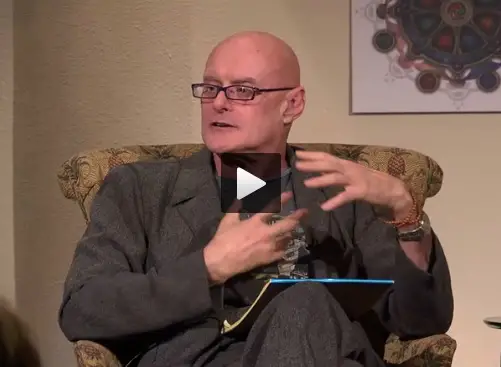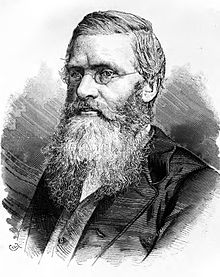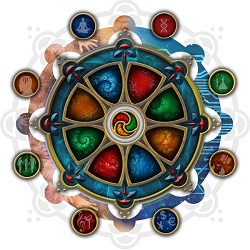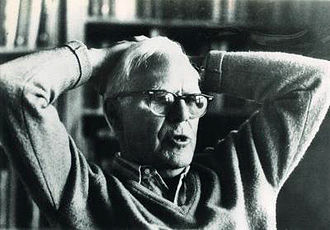|
TRANSLATE THIS ARTICLE
Integral World: Exploring Theories of Everything
An independent forum for a critical discussion of the integral philosophy of Ken Wilber
 Elliot Benjamin is a philosopher, mathematician, musician,
counselor, writer, with Ph.Ds in mathematics and psychology and the author of over 230 published articles in the fields of humanistic and transpersonal psychology, pure mathematics, mathematics education, spirituality & the awareness of cult dangers, art & mental disturbance, and progressive politics. He has also written a
number of self-published books, such as: The Creative Artist, Mental Disturbance, and Mental Health. See also: www.benjamin-philosopher.com.
SEE MORE ESSAYS WRITTEN BY ELLIOT BENJAMIN
Ken Wilber's
Leap of Faith
From Self-Organization to “Spirit in Action”
in Wilber's Fourth Turning of Buddhism
Elliot Benjamin
Did Wilber's jump make me feel good? Well yes it made me feel good—until I started to think more about it.
A few days ago Integral Life sent me a promotional video of Ken Wilber's Fourth Turning of Buddhism (meaning ”integral” Buddhism) conference, highlighting Wilber's conference talk about evolution and spirituality. Well to be more accurate, I was sent a brief 2 minute excerpt of the talk with an invitation to join Integral Life in order to watch the full approximately 45 minutes of the video. Since the relationship of evolution to spirituality is one of my dominant philosophical interests, I decided to make the $14.95 investment to join Integral Life for a month, and I watched the video.

Wilber was in high gear, complete with his charismatic intellectual authoritative way of “simply” explaining things, his illustrative hand and body movements, and his delightfully witty humor, such as how he described what he views as the preposterously unlikely scenario of evolution happening primarily by chance mutations of genes: “the female is in Mexico and the male is in Siberia...they somehow must find each other, then have a little dinner—perhaps some candy—and have sex” (I'm paraphrasing here). But what interested me particularly in Wilber's talk was how he moved into the core of what he wanted to get across to the integral public, which was “spirit in action” through evolution.
Actually Wilber's talk/video had a precursor a few months earlier, which was a promotional essay that Wilber wrote entitled Toward a Fourth Turning, as described by Frank Visser in a 2014 Integral World essay [1]. As Frank Visser has repeatedly conveyed in many of his Integral World essays, Wilber does not convey detailed up-to-date scientific explanations when it comes to evolution. And this video was no exception. There was no mention of contemporary geneticist Sean B. Carroll's cutting edge work on EVO-DEVO and regulator genetic switches known as Hox genes that “turn off” and “turn on” the mechanisms that can result in a greater likelihood of mutations [2].
However, Wilber did use some of the right language as he mentioned a few times how “self-organization” is a vehicle that changes the course of entropy and allows for evolutionary development—i.e. things getting more complex and more improved over time. But then—somehow or other—we start hearing about how all of this necessitates “spirit in action.” Evolution is “spirit's” way of accomplishing what it had “in mind” to begin with. Wilber is careful to state that his use of the language “what spirit had in mind” was somewhat anthropocentric and basically poetic, but just the same I was left with the feeling, that I must admit I do find rather comforting, that spirit had “me” and all other human beings “in mind” from the very beginning—which for me means “before” the Big Bang [3].
Now I want to be clear that it is not the idea of “spirit in action” per se that I have a problem with. For all I know, perhaps this is legitimate and reflects the reality of our universe. But in our current state of scientific knowledge I think this is a matter of faith, not science, and what I was left with from Wilber's talk, which perhaps was partly due to my own confusion about which part of his talk was “poetic license” and which was meant to be “scientific,” was that “all the data shows...” that there is “scientifically” some kind of “spirit” that has always been there; and that evolution is spirit's way of manifesting itself in the universe (no confusion about Wilber's intention for this last part).
Now I don't think that “all the data” shows anything of the kind. Yes self-organization is cutting edge scientific data (cf. [2]), but making the leap to “spirit in action” is not (cf. [1]). Faith is one thing, and even the enormously respected and productive 20th century skeptic Martin Gardner felt the need to soften his scientific and logical thinking about the unlikelihood of there being a God, with the following very human and personally revealing, though quite surprising, self-disclosure [4]:
Fideism refers to believing something on the basis of faith, or emotional reasons rather than intellectual reasons. As a fideist I don't think there are any arguments that prove the existence of God or the immortality of the soul. More than that I think the better arguments are on the side of the atheists. So it is a case of quixotic emotional belief that really is against the evidence. If you have strong emotional reasons for metaphysical belief and it's not sharply contradicted by science or logical reasoning, you have a right to make a leap of faith if it provides sufficient satisfaction.
I do not fault Gardner for revealing his human need for “faith,” as I have expressed my own difficulty in accepting that life may have no ultimate universal meaning, in my 2014 Integral World essay "Life, Death, Meaning, and Purpose" [5]. But Gardner is very clear that his openness to believing in God is not a matter of science, but of emotional needs and faith. And this to me is what Wilber is lacking.
I believe I am now able to see through Wilber when he so easily takes us from self-organization to “spirit in action.”
What I get from Wilber's talk is that he is obtaining the reality of “spirit in action” rationally and scientifically, not from emotional needs or faith. And Wilber's portrayal of evolutionary unfolding as a mechanism of spirit is essentially the same message that we get from his spiritual evolutionary colleagues Barbara Marx Hubbard and Andrew Cohen [6]. From my perspective it is a way of maintaining a comforting spiritual view of life while supposedly being up-to-date on what today's science is generally reporting. Well perhaps it may sound like this if you don't think too much about it. But people like Frank Visser have spoiled this rose-colored world for me, and through all that I have learned from Frank's (and a number of other very astute Integral World writers regarding Wilber's stance on evolution) repeated efforts, I believe I am now able to see through Wilber when he so easily takes us from self-organization to “spirit in action.”
However, just as Martin Gardner had his all too understandable human qualities of emotional needs and faith, perhaps I too am not immune to these qualities. I must admit that what Wilber describes as the Fourth Turning of Buddhism is attractive to me. And what Wilber describes as Buddhism being a rich set of traditions for “meditation, contemplation, and spiritual exercises,” rings true to me as well. There has certainly been a great deal of research showing the benefits of meditation, one example being John Kabat-Zinn's mindfulness-based stress reduction, which has its own set of Buddhist foundations, though Kabat-Zinn has very skillfully and successfully promoted his program as being scientifically and medically relevant to our modern society [7].
But then my guiding force philosophical mind takes over, and I ask myself how I can follow someone who makes leaps and bounds presumably explainable by science that to me is nothing more than (nor less than) faith and emotional needs. I would love to believe that there really is something like “spirit in action” that had “me” in mind billions of years ago before the Big Bang happened. After all, as Wilber indicates, the idea that evolution and spirituality could coincide was not something foreign to many of the leading founders and advocates of evolution in the 19th century, an example of which is the following statement by spiritualist evolution co-founder Alfred Russel Wallace [8]:
In reference to the origin of universal forces and laws have I spoken of the will or power of one Supreme Intelligence....the controlling action of such intelligences is a necessary part of these laws....the whole universe, is not merely dependent on, but actually is, the WILL of higher intelligences or of one Supreme Intelligence.
Andrew Brackman [9] described Wallace's metaphysical views in regard to evolution as follows:
 Alfred Russel Wallace
Alfred Russel Wallace
Wallace argued that while natural selection accounted for man's bodily frame, it could not account for man's emergence as a spiritual being.... Wallace felt it "utterly inconceivable” that man's development as a spiritual being resulted from natural selection.... he suggested that a “superior intelligence” has guided the development of man... and for a special purpose, just as man guides the development of many animal and vegetable forms.”
Certainly it must be acknowledged that Wilber's description of “spirit in action” would resonate with the views of Alfred Russell Wallace were he alive today. And in addition, it is even the case that Charles Darwin himself would not necessarily disagree with Wilber, as is evident from the following letter that Darwin wrote [10]:
It seems to me absurd to doubt that a man can be an ardent Theist and Evolutionist.... In my most extreme fluctuations I have never been an Atheist in the sense of denying the existence of a God. I think that generally (and more and more as I grow older, but not always), that an Agnostic would be the more correct description of my state of mind.
And Charles Lyell, renowned 19th century geologist and member of Darwin's inner circle and who was a strong advocate for Darwin's ideas about evolution, said the following in a letter to Darwin regarding his approval of Wallace's “spiritual” ideas [11]:
As I feel that progressive development or evolution cannot be entirely explained by natural selection, I rather hail Wallace's suggestion that here may be a Supreme Will and Power which may not abdicate functions of interference, but may abide by the forces of laws of nature.
Yes it does appear that a number of the 19th century founders and advocates of evolution would have no problem with Wilber's “spirit in action” if they were alive today. And I do not think that this 19th century openness to “spirit in action” was just a function of religion and spirituality being more prominent a few hundred years ago, as the range of beliefs in all kinds of mystical, spiritual, metaphysical, and “weird” things today is apparently no less than it was a few hundred years ago (cf. [10], [12]). As arch skeptic Michael Shermer explained [13]:
To the frequently asked question, “What is your position on life after death?” my standard response is “I'm for it, of course.” The fact that I am “for” life after death does not mean I'm going to get it. But who wouldn't want it? And that's the point. It is a very human response to believe in things that make us feel better.
Did Wilber's jump make me feel good? Well yes it made me feel good—until I started to think more about it. And I suspect that many Wilberians will never think more about it.
Thus in conclusion I find Wilber's portrayal of his Fourth Turning of Buddhism, which is Integral Buddhism, to be interesting and uplifting. However, I don't think that Wilber has demonstrated any scientific rational explanation for evolution being “spirit in action.” Rather, I think that Wilber's “spirit in action” description is a “feel good” jump from our current scientific findings about self-organization being included as one of the possible significant scientific explanatory mechanisms of evolution.
Did Wilber's jump make me feel good? Well yes it made me feel good—until I started to think more about it. And I suspect that many Wilberians will never think more about it.
Notes and References
1) See Ken Wilber (2014), The Fourth Turning: Exploring the Future of Buddhism. Retrieved from http://fourthturningbuddhism.com/toward-fourth-turning; Frank Visser (2014), For Crying Out Loud: Ken Wilber Repeats Vaporous Arguments About Evolution. Retrieved from www.integralworld.net
2) See Sean B. Carroll (2006), Endless Forms Most Beautiful: The New Science of EVO-DEVO. New York: W.W. Norton & Co.; Frank Visser (2013), Rupert Sheldrake and the Evo-Devo Revolution: A Comparataive Evaluation. Retrieved from www.integralworld.net; Rupert Sheldrake (2013), Morphogenetic Fields: Reply to Frank Visser. Retrieved from www.integralworld.net
3) See Elliot Benjamin (2014), Psychic Phenomena, Evolution, and Universal Meaning. Retrieved from www.integralworld.net
4) See Michael Shermer (2002), Why People Believe Weird Things: Pseudoscience, Superstition, and Other Confusions of Our Time. New York: St. Martin's Griffin; p. 276.
5) See Elliot Benjamin (2014), Life, Death, Meaning, and Purpose. Retrieved from www.integralworld.net
6) See Barbara Marx Hubbard (2001), Emergence: The Shift from Ego to Essence: 10 Steps to the Universal Human; Charlottesvlle, VA; Hampton Roads Publications; Andrew Cohen (2011), Evolutionary Enlightenment: A New Path to Spiritual Awakening. New York: Select Books.
7) See Jon Kabat-Zinn (2006), Coming to Our Senses: Healing Ourselves and the World Through Mindfulness; New York: Hyperia.
8) See Alfred Russel Wallace (1870, 2010), Contributions to the Theory of Natural Selection. Memphis, TN: General Books; pp. 158, 162-163; Elliot Benjamin (2013), Alfred Russel Wallace and “Evolution in Four Minutes”: Setting the Record Straight. Retrieved from www.integralworld.net
9) Arnold Brackman (1980), A Delicate Arrangement: The Strange Case of Charles Darwin and Alfred Russel Wallace. New York: Times Books.
10) See Michael Shermer's book in [3], p. 132; the quote is taken from the Darwin Archives, 1883, Box 106, Cambridge University Library.
11) See Arnold Brackman's book in [2], p. 281.
12) See Carl Sagan (1996), The Demon-Haunted World: Science as a Candle in the Dark. New York: Random House.
13) See Michael Shermer's book in [3]; p. 276.
|
 Elliot Benjamin is a philosopher, mathematician, musician,
counselor, writer, with Ph.Ds in mathematics and psychology and the author of over 230 published articles in the fields of humanistic and transpersonal psychology, pure mathematics, mathematics education, spirituality & the awareness of cult dangers, art & mental disturbance, and progressive politics. He has also written a
number of self-published books, such as: The Creative Artist, Mental Disturbance, and Mental Health. See also: www.benjamin-philosopher.com.
Elliot Benjamin is a philosopher, mathematician, musician,
counselor, writer, with Ph.Ds in mathematics and psychology and the author of over 230 published articles in the fields of humanistic and transpersonal psychology, pure mathematics, mathematics education, spirituality & the awareness of cult dangers, art & mental disturbance, and progressive politics. He has also written a
number of self-published books, such as: The Creative Artist, Mental Disturbance, and Mental Health. See also: www.benjamin-philosopher.com.



